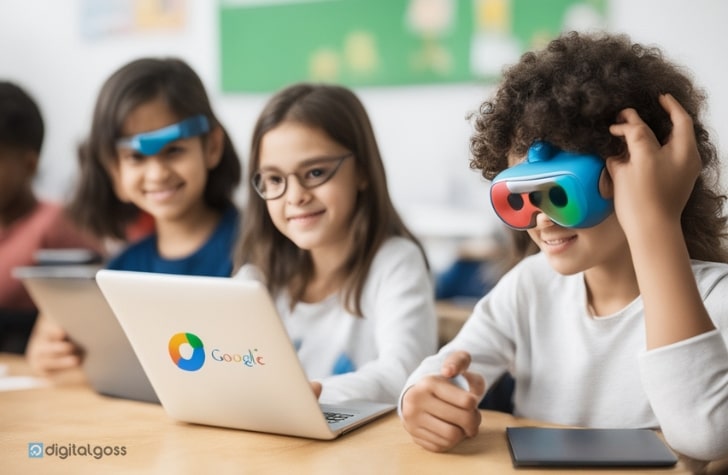Google is set to revolutionize classroom learning by expanding access to its AI assistant, Gemini, to teenagers using their school accounts. This move aims to integrate advanced AI technology into the educational ecosystem, providing a host of features designed to enhance learning while ensuring safety and privacy.
Bringing AI into Education
Gemini, initially launched with a teen-safe version for personal use, will now be available through Google Workspace for Education accounts and school-issued Chromebooks in over 100 countries. This rollout, scheduled for the coming months, is part of Google’s broader strategy to incorporate Artificial Intelligence into everyday workflows for individuals and businesses. By extending Gemini’s capabilities to the classroom, Google hopes to streamline educational processes and foster a more interactive and efficient learning environment.
Features and Functionalities
Students meeting the minimum age requirements — 13 or older in the U.S., and 18 or over in the European Economic Area, Switzerland, Canada, and the U.K. — will gain access to a suite of AI-powered features. These include:
- Help me write: Assisting students in drafting and refining their written assignments.
- Help me read: Providing real-time, AI-based reading assistance.
- Generative AI backgrounds: Enhancing the visual appeal of projects and presentations.
- AI-powered noise cancellation: Improving audio quality during virtual meetings and collaborations.
Additionally, students will be able to organize and track homework assignments through Google Task and Calendar integrations, collaborate with peers using Meet and Assignments, and benefit from the integration of Google Classroom with their school’s Student Information System (SIS).
Safety and Privacy Measures
Google emphasizes the responsible use of AI, particularly given the potential risks associated with generative AI. To ensure student safety, several robust measures have been implemented:
- Admin Controls: School administrators have the authority to enable or disable features as needed, ensuring that the use of AI aligns with educational goals and safety standards.
- Data Privacy: No personal data from this program will be used to train AI models, safeguarding student privacy.
- Content Filtering: Gemini has been tuned to filter out inappropriate content and prevent harmful responses.
- Onboarding and Literacy: An AI Literacy video helps students understand how to use Gemini effectively and responsibly.
Enhancing Classroom Experience
The introduction of Gemini in the classroom extends beyond individual student use. Educators will benefit from tools like the “Read Along in Classroom” feature, which offers real-time support for building reading skills and provides feedback on reading accuracy, speed, and comprehension. Teachers can also generate personalized stories tailored to each student’s educational needs, a feature initially available in English and soon to support other languages, starting with Spanish.
Google is also piloting “Gemini in Classroom” tools, allowing teachers to assign different content based on student groups’ needs. The Google for Education App Hub will include new app integrations like Kami, Quizizz, and Screencastify, expanding the resources available to both students and educators.
Accessibility and Security Enhancements
In addition to educational features, Google is rolling out several accessibility and security enhancements:
- Read Aloud in Chrome: This feature will help visually impaired students by reading web content aloud.
- OCR Technology for PDFs: Making PDFs accessible to screen readers.
- Facial Expression and Head Movement Controls: A future feature enabling users to control their Chromebooks using facial expressions and head movements.
Security measures include preventing students from initiating direct messages to mitigate bullying, blocking access to Classroom from compromised devices, and requiring multiparty approval for security-sensitive changes.
Google’s expansion of Gemini AI to teen students using school accounts marks a significant step in integrating AI into the classroom. By offering a range of features designed to support both students and educators, while implementing strong safety and privacy measures, Google aims to create a secure and enriching educational environment. This initiative reflects a commitment to using technology to enhance learning experiences and prepare students for a future where AI plays an increasingly vital role.
Editor’s Recommendations
- Surgeon General Murthy Advocates for Social Media Warning Labels
- Amazon’s Alexa to be Supercharged with AI but at a Cost for Subscribers
- Apple to Delay Launch of AI-Powered Features in Europe, Citing EU Tech Rules
- Apple and Meta Reportedly Discuss AI Partnership, WSJ reports
- Apple Intelligence: Everything About Release Date, Features, and Privacy

